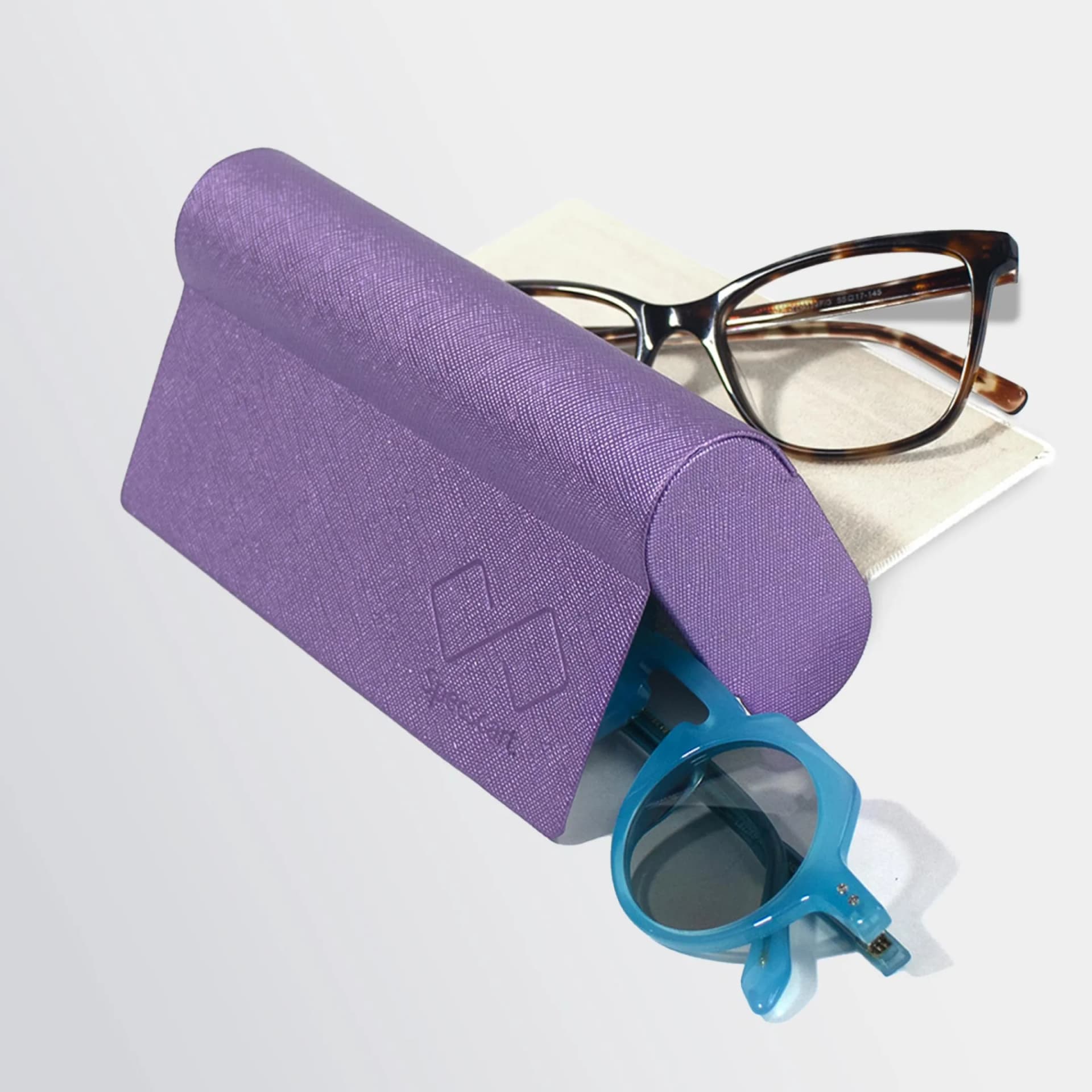What is Hyphema: Causes, Symptoms, Diagnosis and Treatment?

Content Manager
Hyphema is an eye condition characterised by the collection or pooling of blood within the eye’s anterior chamber. As a result, it often leads to vision blockage, discomfort and some other vision problems such as light sensitivity.
Individuals get exposed to hyphema due to trauma and various other medical conditions. Whereas the chances of dealing with permanent vision loss are less, it isn’t impossible. Since hyphema comes with long-term repercussions, seeking prompt treatment is extremely mandatory. Starting from home remedies to prescription medications, one can opt for extensive treatment methods to combat the given situation.
Also, hyphema treatment heavily depends on various other factors like the patient’s age, their ability to tolerate medications and the severity level of the eye injury. If you don’t address your eye condition, it will eventually lead to bigger risk factors and complications. All you need to do is get in touch with an optometrist and allow them to perform a proper screening. Hyphema can be diagnosed; however, it should be detected in the first place. To learn more about the causes, symptoms, diagnosis and treatment, stick till the end of this blog:
What are the Symptoms of Hyphema?
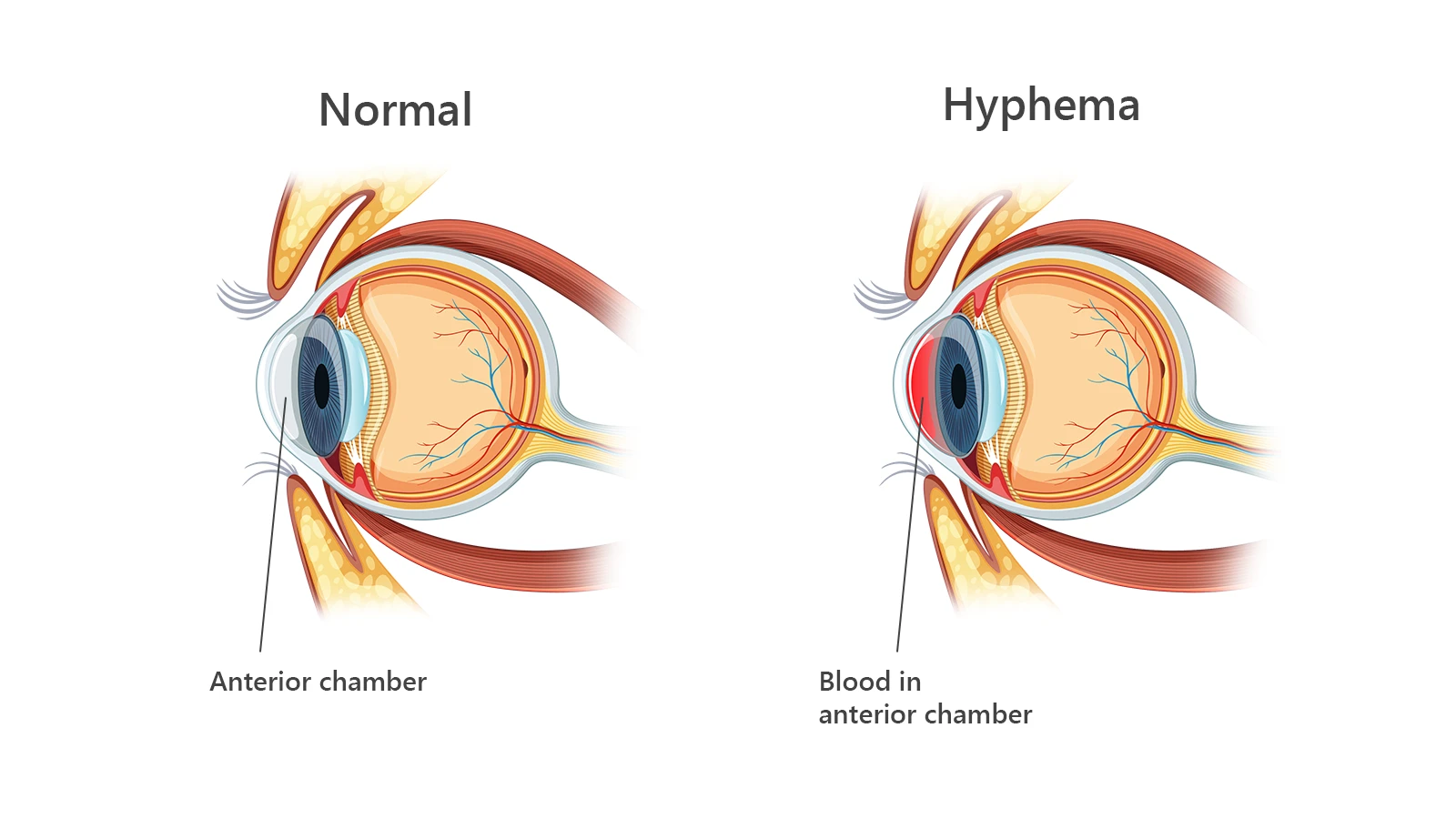
If you are also wondering what the symptoms of Hyphema are, then here are some of them for your understanding:
Visual disturbance: Hyphema results in visual disturbance and vision changes. Of course, the degree of hyphema plays a significant role in determining the extent of visual disturbance. If you have hyphema, you will only be able to detect some amount of light or identify hand movements.
Bloody eye: In hyphema, the aqueous humour is replaced with blood, which eventually leads to bloody eyes.
Eye pain: Blood in your anterior chamber causes pressure and irritation in this condition. It gives rise to unnecessary eye pain after a certain point in time.
Light sensitivity: Also referred to as photophobia, light sensitivity might end up hurting your eyes and causing headaches.
What are the Causes of Hyphema?
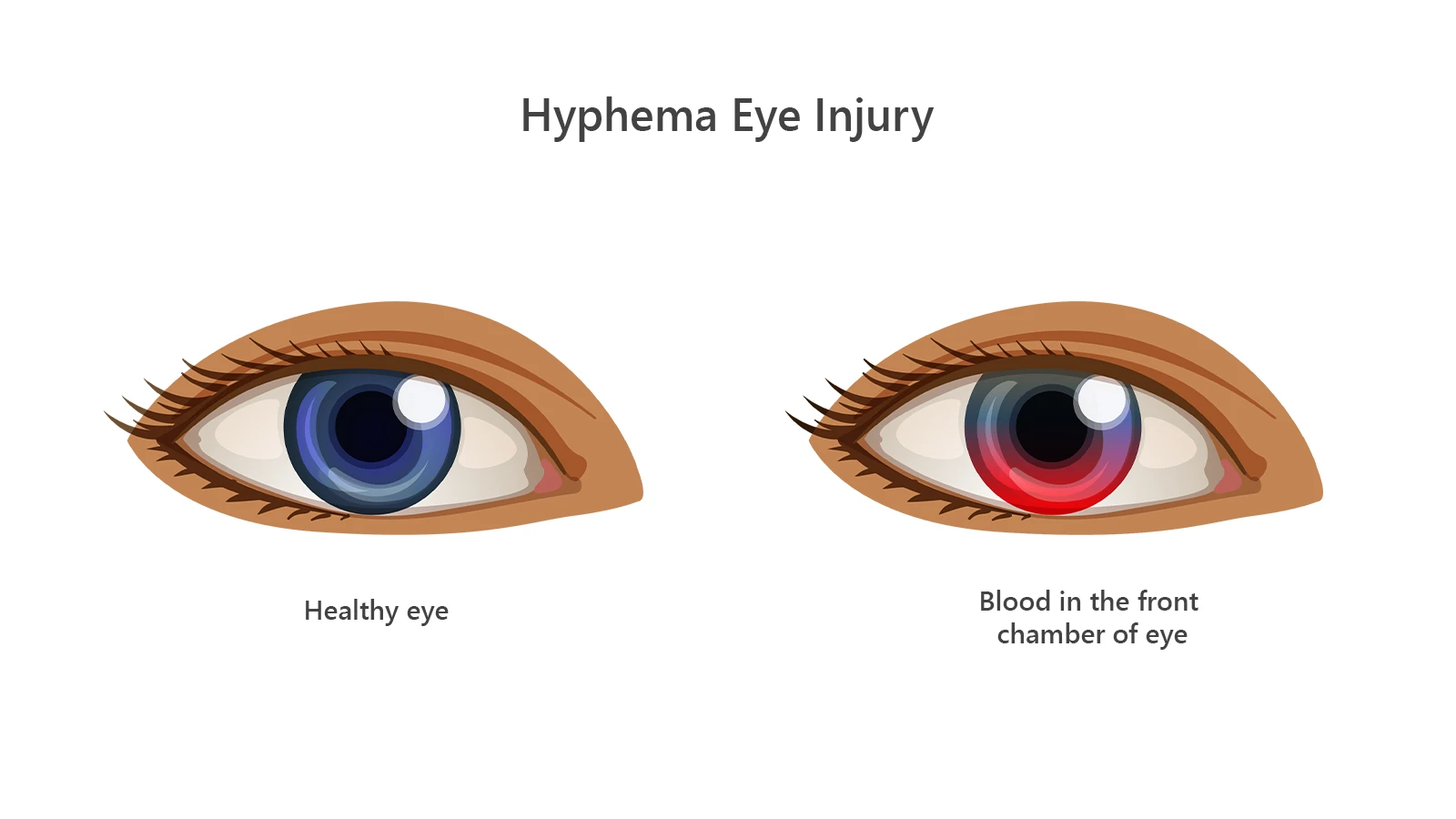
Speaking of numbers, nearly 70% of hyphemas take place in children (males mainly) aged between 10 to 20. Blunt injuries from the following activities pave the way toward causing hyphema:
Industrial accidents
Sports
Fights
Falls
Shooting airsoft guns
Some of the less common hyphema causes are:
Eye infections from the herpes virus
Eye surgery
Presence of unusual blood vessels on your iris
Eye cancers
Blood clotting issues
Some health conditions pose serious threats to your blood- it can boost the chances of dealing with hyphema:
Haemophilia
Leukaemia
Von Willebrand disease
Sickle cell disease
Blood-thinning drugs (anticoagulants)
What are the Complications of Hyphema?
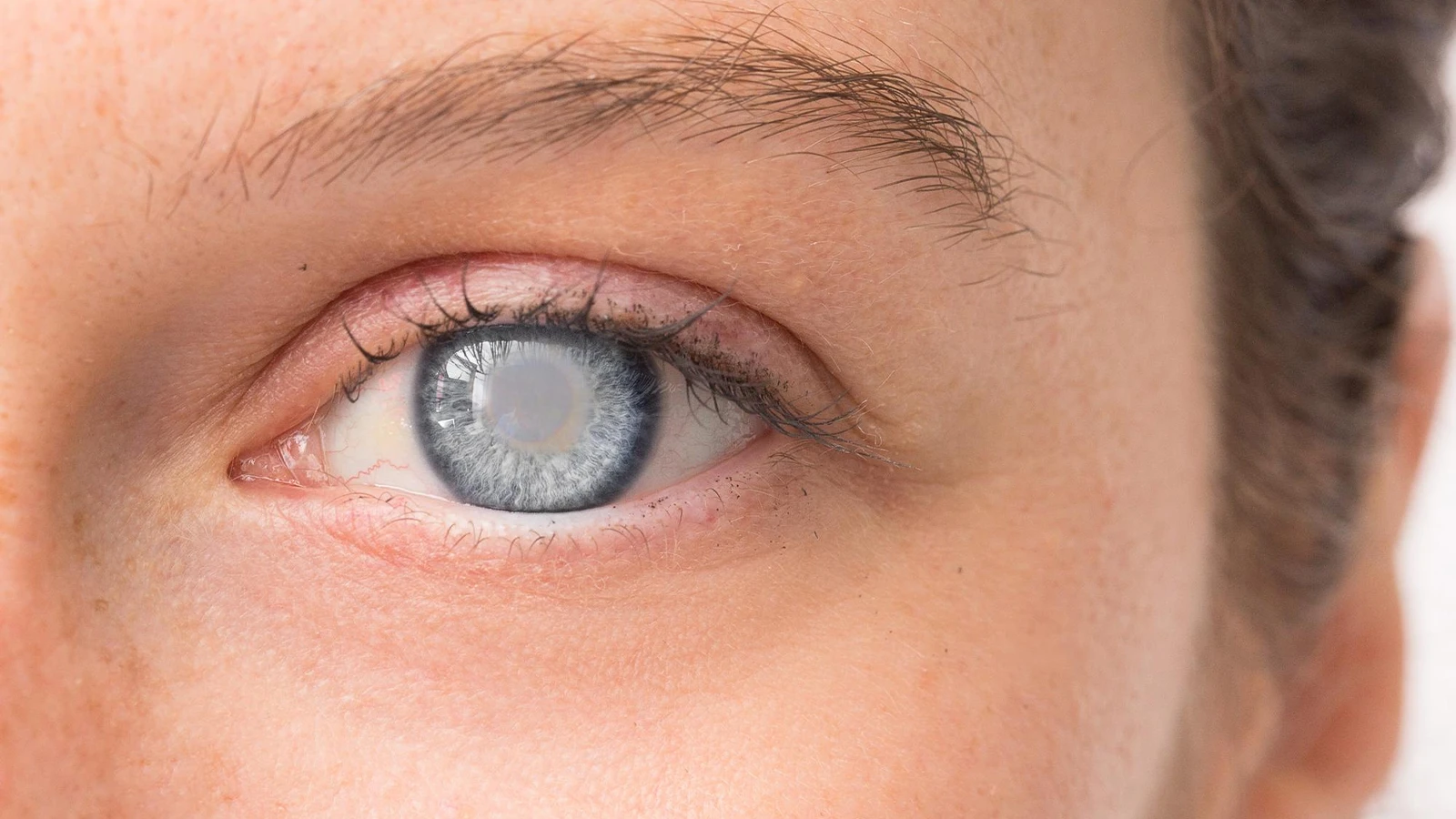
If you don’t seek appropriate intervention, hyphema can cause a lot of serious complications. Some of them typically include:
Corneal Blood Staining: Blood retention in your anterior chamber leads to corneal staining along with cloudy vision.
Glaucoma: Blood clotting in your eyes increases intraocular pressure- it is an evident characteristic of the eye disease known as glaucoma. If you don’t take steps to resolve glaucoma, it can push you toward permanent vision loss.
Loss of Vision: Non-glaucomatous optic atrophy that results from chronic or transient intraocular pressure elevation causes vision loss (unless it is addressed beforehand and treated properly).
How Can You Diagnose Hyphema?
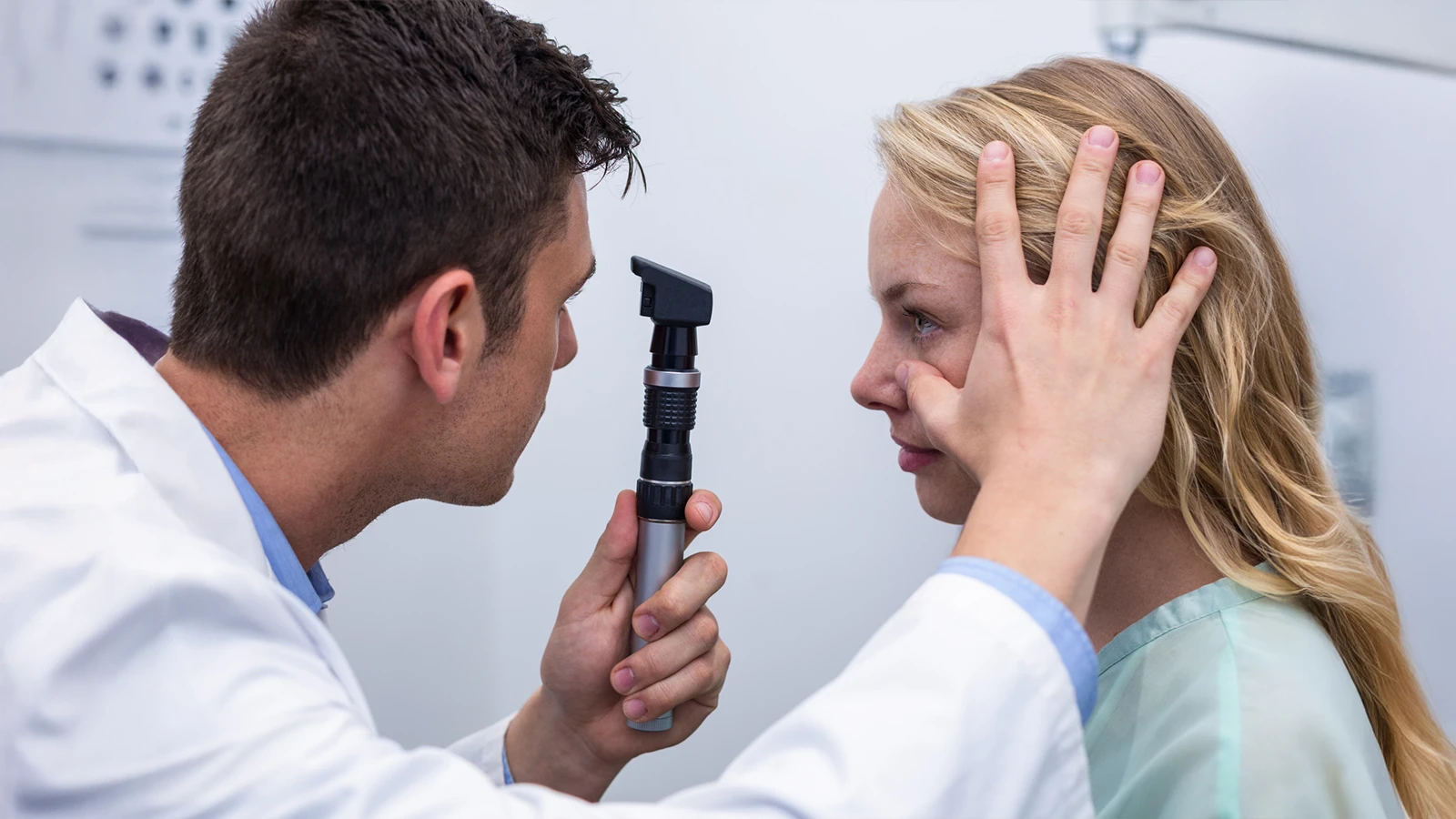
In order to get a diagnosis for hyphema, the patient needs to provide their complete medical history. It will help the eye specialists figure out whether trauma is the reason affecting your eyes. They will try to spot the symptoms, thus reaching a conclusion and suggesting proper solutions. Some of the diagnosis methodologies include:
Tonometry: Tonometry is a test where the pressure level in the eyes is determined. Before starting this process, the doctors choose to numb their patients’ eyes- it reduces discomfort. In this test, a dye, a slit lamp and a machine to read pressure are used.
Eye Pressure Examination: An eye pressure examination allows the optometrist to understand whether the pressure level is normal or abnormal. It is a great way to learn about hyphema complications.
Comprehensive Eye Examination: A comprehensive eye examination helps to determine an individual’s ability to observe and see things. You can book a free eye-test slot with us and hop into our stores across Manchester if you live nearby.
Slit Lamp Test: A slit lamp test is performed to look inside the eyes. In this process, the doctor relies on a combination of magnification and bright light.
CT Scan: If hyphema is caused due to trauma, a CT scan is performed to learn whether the eye socket is fractured or not.
How Can You Treat Hyphema?
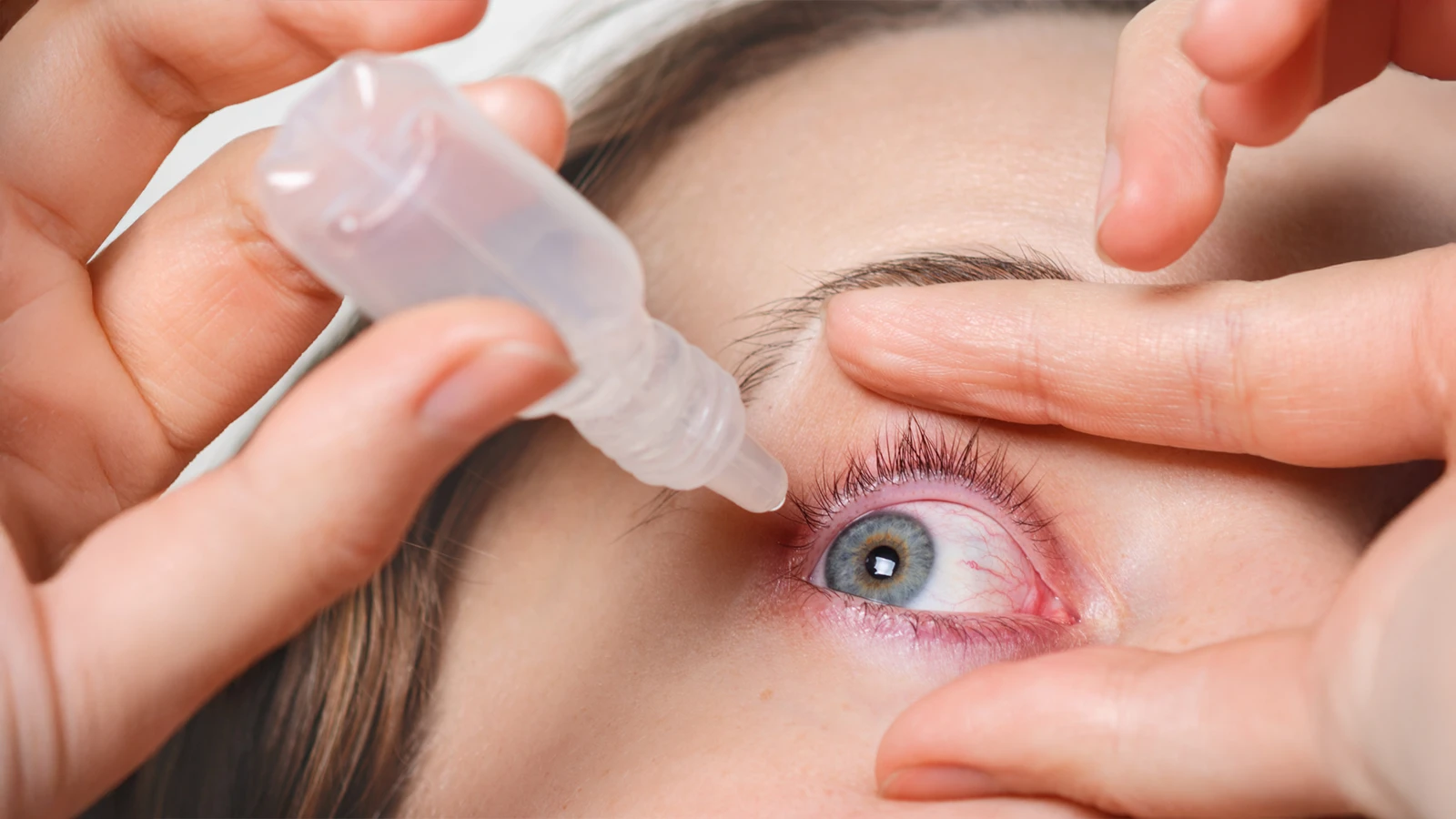
Mild hyphema takes one week to heal. In such cases, you can opt for pain-killer medication that doesn’t have aspirin in it. Now, you might wonder what’s wrong with aspirin. Well, it can increase bleeding.
Before treating hyphema, the eye doctor needs to consider certain factors mentioned below:
The injury and its severity
Your medical history, age and overall health condition
Personal preference or opinion
Your tolerance level for certain medications
After collecting this information, the doctor will be able to figure out the best treatment method, which might include:
Eye drops
Complete bed rest
Patch over the eyes that are affected and hurt
Limited eye movement - you need to stop reading texts
Check your eye pressure regularly
Concluding Thought
If you are wondering about hyphema prevention, sports glasses and sunglasses can be of great help. They keep your eyes safe in case of an impact or even during movement. You can explore our Actics range of sports glasses and sunglasses that are made from shatter-proof TR-90 material.
Caution: You may become style obsessed
Your way finder
2000+ Trendy Styles

Fashion Forward Sunnies















































